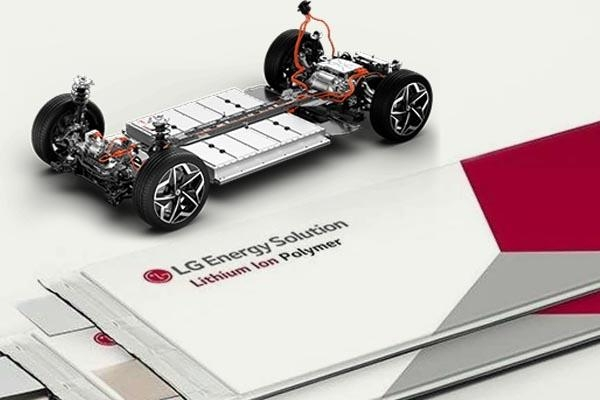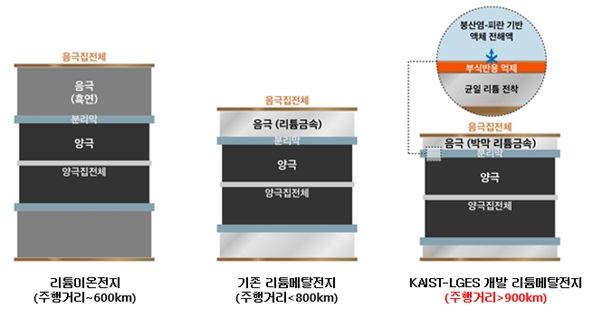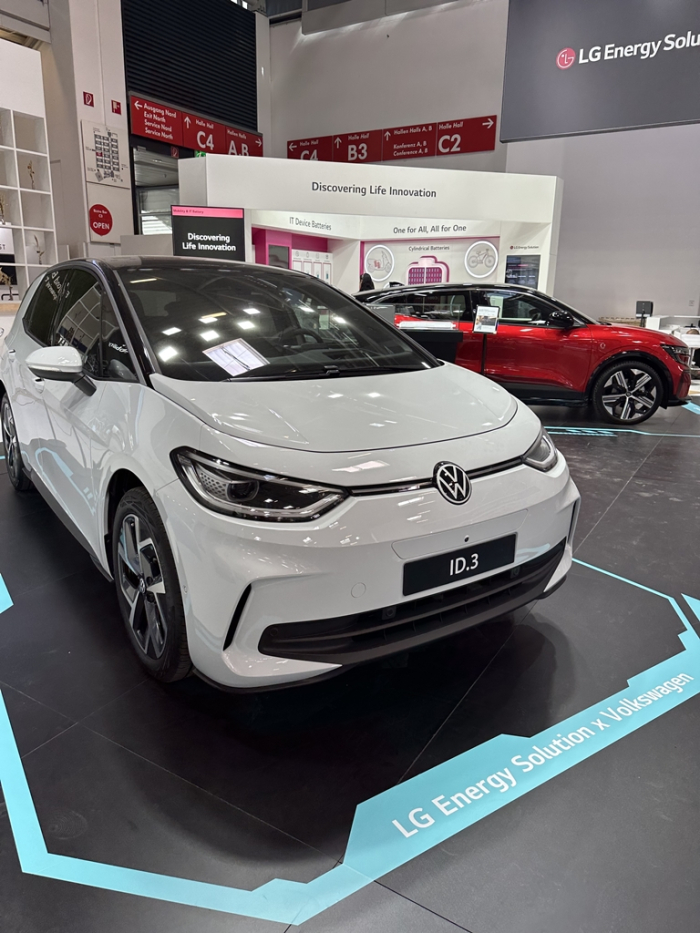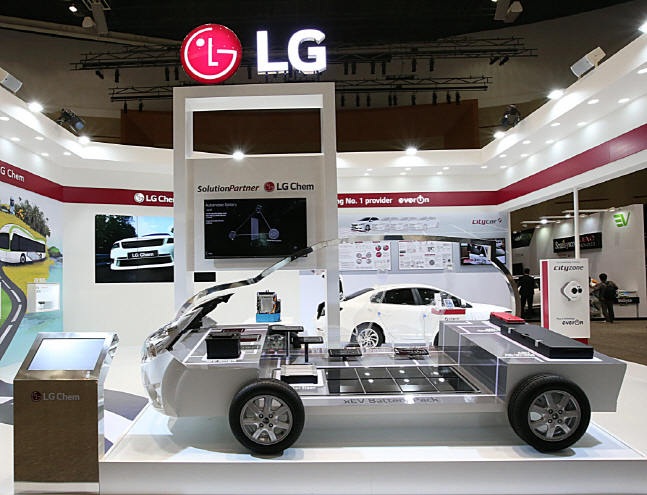Batteries
LG Energy, KAIST develop Li-Metal battery tech for improved EV range
Given higher energy density and a longer battery lifespan, LMBs will become a game-changer if commercialized
By Dec 07, 2023 (Gmt+09:00)
3
Min read
Most Read
LG Chem to sell water filter business to Glenwood PE for $692 million


KT&G eyes overseas M&A after rejecting activist fund's offer


Kyobo Life poised to buy Japan’s SBI Group-owned savings bank


StockX in merger talks with Naver’s online reseller Kream


Meritz backs half of ex-manager’s $210 mn hedge fund



South Korea’s LG Energy Solution Ltd. and the Korea Advanced Institute of Science & Technology (KAIST) have developed a lithium-metal battery technology that promises a 50% increase in electric vehicle driving range compared to conventional lithium-ion battery cells.
LG Energy, a leading global battery maker, said on Thursday a joint team of researchers with the KAIST has secured the technology that drastically improves energy density for such batteries, also known as Li-Metal Battery (LMB) cells, after two years of research.
The research results were published in a recent edition of Nature Energy, a monthly peer-reviewed scientific journal, LG said.
LMBs hold great promise for EVs and other applications due to their high theoretical energy density and potential for improved safety. However, such batteries have proven difficult to manufacture at scale, hindering their commercial introduction.
BATTERY GAME-CHANGER
Lithium-metal batteries replace the graphite-based anode material with lithium metal, reducing the weight and volume of the anode. As a result, LMBs drastically improve the charging and discharging efficiency and elongate the lifespan of battery cells – a “battery game-changer” as industry watchers put it.

However, the addition of lithium metal into the anode materials damages battery separators, generating a byproduct called dendrite, and causes corrosion through a liquid electrolyte, leading to a shorter battery lifespan and low efficiency.
LG said the LG-KAIST team, for the first time in the world, used borate-pyran-based liquid electrolyte to solve this problem.
The new technology made it possible to increase the charging and discharging efficiency of lithium-metal batteries while achieving an energy density sufficient for an EV driving range of up to 900 km on a single charge, according to LG.
That compares with high-performance lithium-ion battery cells that allow an EV to run for up to 600 km on a single charge.
LG said the new technology ensures a longer battery lifespan with more than 400 recharge cycles, and unlike solid-state batteries, it does not require high temperature and pressure to put battery cells into action.

BREAKTHROUGH IN LIQUID-ELECTROLYTE BATTERIES
For the development of the new technology, LG Energy and KAIST set up a joint research center, Frontier Research Laboratory (FRL), in 2021. LG runs multiple FRLs with other universities and research institutions in Korea to develop innovative technologies.
"This technology is significant in that it has overcome a major hurdle to the commercialization of lithium-metal batteries using liquid electrolytes," said Jung Geun-chang, vice president and head of LG Energy's Future Technology Center.
Kim Hee-tak, a biological science professor at KAIST, said: “The research results proved the feasibility of liquid electrolyte-based lithium-metal batteries, previously considered impossible."

HYUNDAI MOTOR-INVESTED SES TO UNVEIL SAMPLES
Battery makers worldwide are racing to develop next-generation batteries, including an all-solid-state battery (ASSB), as lithium-ion batteries, which most EVs are currently using, have some issues such as the risk of catching fire.
SES Holdings Pte. (SES), one of the industry’s leading ASSB makers, said in November 2021 that it developed a high-performance Li-Metal battery and supplied samples to its key investors, including General Motors Co. and Hyundai Motor Co.
Ford Motor-backed solid-state battery developer Solid Power Inc. of the US is another industry leader.
In Korea, three battery majors – LG Energy, SK On Co. and Samsung SDI Co. – are all working on ASSBs.
Hyundai Motor-invested SES is expected to unveil samples of a Li-Metal battery for urban air mobility (UAM) vehicles next month.
Write to Sungsu Bae at baebae@hankyung.com
In-Soo Nam edited this article.
More to Read
-
 BatteriesLG Energy, Ford’s battery JV in Turkey scrapped as EV uptake slows
BatteriesLG Energy, Ford’s battery JV in Turkey scrapped as EV uptake slowsNov 12, 2023 (Gmt+09:00)
3 Min read -
 BatteriesLG Energy may partner with JSW to make EV batteries in India
BatteriesLG Energy may partner with JSW to make EV batteries in IndiaSep 22, 2023 (Gmt+09:00)
2 Min read -
 BatteriesSK On to spend $352 million to mass produce solid-state batteries by 2028
BatteriesSK On to spend $352 million to mass produce solid-state batteries by 2028Apr 24, 2023 (Gmt+09:00)
2 Min read -
 BatteriesUS startup SES unveils game-changing lithium-metal battery
BatteriesUS startup SES unveils game-changing lithium-metal batteryNov 04, 2021 (Gmt+09:00)
2 Min read -

-
 BatteriesLG Energy develops safer, long-lasting solid-state battery technology
BatteriesLG Energy develops safer, long-lasting solid-state battery technologySep 24, 2021 (Gmt+09:00)
2 Min read
Comment 0
LOG IN


